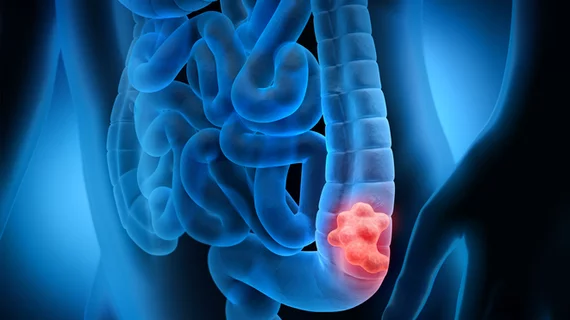Radiomics tool spots colon polyps before they evolve into cancer
A new machine learning tool extracts imaging data "invisible" to humans and distinguishes pre-cancerous from non-cancerous polyps on CT colonography scans, researchers reported Tuesday in Radiology.
German investigators trained their algorithm on a set of more than 100 colorectal polyps from 63 patients, sharing their process in Radiology. The proof-of-concept study was a success, they noted, with the approach notching an “excellent” area-under-the-curve score of 0.91 for distinguishing between polyp types.
Radiologists may be able to use the algorithm to help diagnose one of the top three causes of cancer-related death among men and women: colorectal cancer.
"Adding machine learning-assisted image analysis to conventional, radiological image reading could further improve the clinical significance of CT colonography-based colorectal cancer screening by allowing for a more precise selection of patients eligible for subsequent polypectomy," lead author Sergio Grosu, MD, a radiologist with University Hospital in Munich, Germany, explained in a statement. “This method could be used routinely as a second reader in all CT colonography examinations in the distant future."
Grosu and colleagues trained their radiomics-based machine learning platform to extract quantitative imaging features and predict individual polyp types. They tested their creation on a set of 77 polyps from 59 patients.
In that set, the tool notched a sensitivity of 82% and specificity of 85% for noninvasively differentiating benign from premalignant polyps.
Additional testing with more patients will help validate their findings, Grosu noted.
"Further refinement of the machine learning-based image analysis is necessary to achieve higher precision in polyp differentiation as well as workflow optimization for better applicability in clinical routine," he added.

